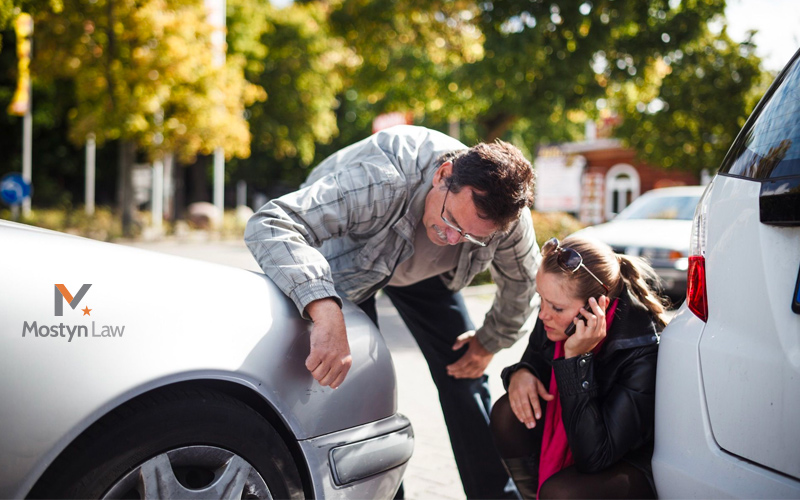In this article, we’ll discuss five tips how to handle your property damage claim from the same type of accident—a Texas car wreck, but with only property damage (not personal injury). Regardless, I recommend you read the prior article in conjunction with this one, as I am attempting to avoid its repetition here. Many of those caveats for a personal-injury accident work in property-damage-only claims, too.
1. Stop at the scene, but do not admit fault; document the damage and position of the cars. Texas Transportation Code Section 550.022(a)(1) requires you to immediately stop your car at the accident scene, or as close as possible to it without obstructing traffic. Similar to the last personal-injury article, do not admit any type of fault. Instead, politely exchange your insurance information and photograph not only the damage but the roadway and position of the cars. Note that, under Texas Transportation Code Section 550.022(c), if you leave the scene of the accident before providing your information and rendering aid (if needed), that is a Class C misdemeanor (if damage to all cars is less than $200), and is actually a Class B misdemeanor (if damage to all cars is greater than $200). Class B misdemeanors are akin to first-time DWI’s, so this is not an inconsequential offense. Since today’s cars typically sustain greater than $200 damage in even the slightest accident, note that leaving the scene will likely create a Class B misdemeanor criminal offense headache likely to create significant expense and heartache. So, just stop, exchange information, and offer aid.
2. Notify the police. Even if just minor damage, it’s always safer to have a police report after an accident. As discussed in the last article, not all counties or municipalities dispatch officers to accident scenes, let alone those without any injuries. So, don’t be upset if the police refuse to come to the scene—just document the scene as best you can, and get the name and phone numbers of any witnesses. The more photographs, the better.
3. Move your car to the side of the road, if safe to do so. You might have seen some of these signs along the highway. Texas Transportation Code Section 550.022 requires you to move your car off any main lane, ramp, shoulder, median, or adjacent area of a freeway if your car “can be normally and safely driven…” Note that if you don’t move your car off the traveled portion of the roadway or to a safe location, you are merely increasing the risk of further accidents and injuries.
4. No, even if the wreck was not your fault, you are not immediately entitled to a rental car. In Texas, the at-fault driver must compensate the victim for injury and damages. This includes, of course, the reasonable rate for a rental car while the damaged car is out of commission. One of the more frequent questions I’m asked is, right after the accident, why isn’t the at-fault driver’s insurance company paying for a rental car? Mostly because they don’t have to do so, until ordered to do so by a jury. However, many insurance companies will offer a rental car, soon after the accident, to avoid incurring that exposure later in litigation. If the at-fault driver’s insurance company refuses to pay for your rental car (and if you do not have rental coverage yourself), the only option that remains is that you pay for the rental yourself, and then add that to your total claim against the other driver in the lawsuit. Be sure to provide your attorney any receipts for the rental so they can be produced in the litigation and added to your disclosures. If you don’t tell your attorney or produce that information, your rental damage claim may be precluded from the lawsuit.
5. You are entitled to a rental car in the same class of car that was totaled—and for as an amount of time it takes to find a replacement. Recently, in J&D Towing, LLC v. American Alt. Ins. Corp., 478 S.W.3d 649 (Tex.2016), the Texas Supreme Court held that the at-fault driver who totals your car can be required to provide a rental car to you in the same class of car that was totaled, for an amount of time sufficient to find a replacement. Note that, previously, many insurance companies claimed that they were not obligated to provide a rental car for those accidents where the car was totaled. That is not the law—and you should cite this case to them for that effect. Of course, if you totaled a 1992 Geo Metro, you cannot demand a 2017 BMW—your rental must be in the same class as what was totaled.
Property-damage-only claims in Texas are better handled by an attorney, of course. However, if you’re on your own, these five tips will help you avoid some of the more common obstacles. Keep in mind there is a two-year limit to filing a lawsuit for property-damage claims in car-wreck cases. Consult an attorney for more information, and especially if you are injured.

